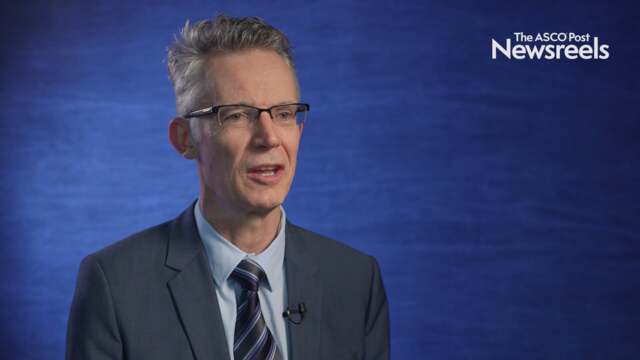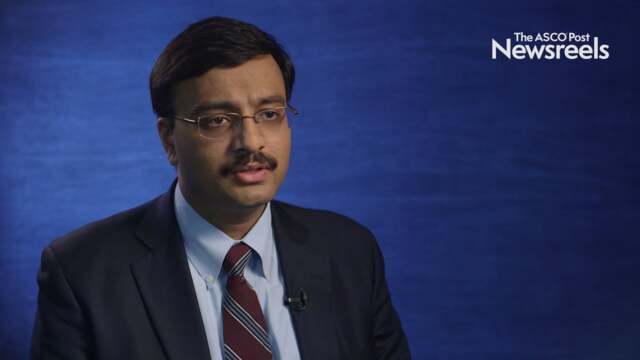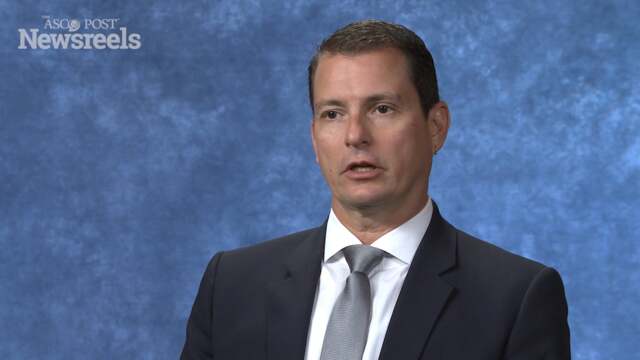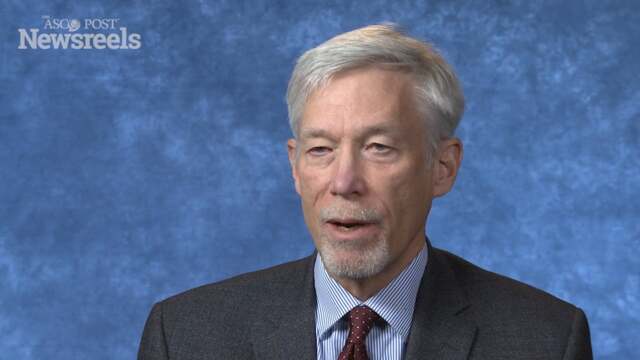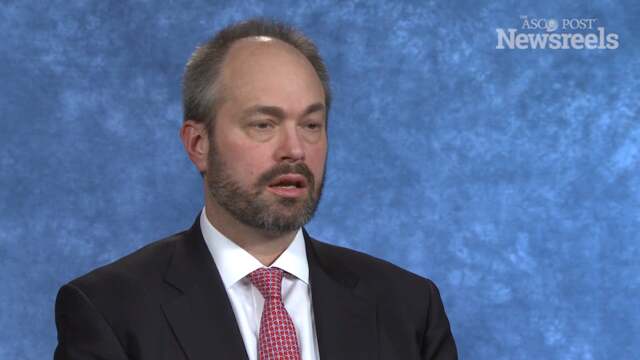ICER Releases Draft Evidence Report on CAR T-Cell Therapy for B-Cell Cancers
On December 19, the Institute for Clinical and Economic Review (ICER) released a Draft Evidence Report assessing the comparative clinical effectiveness and value of tisagenlecleucel (Kymriah) and axicabtagene ciloleucel (Yescarta). The draft report, along with draft voting...
FDA Grants Accelerated Approval to Bosutinib for Treatment of Newly Diagnosed Philadelphia Chromosome–Positive CML
On December 19, 2017, the U.S. Food and Drug Administration (FDA) granted accelerated approval to bosutinib (Bosulif) for treatment of patients with newly diagnosed chronic-phase Philadelphia chromosome–positive chronic myelogenous leukemia (CML). BFORE Trial Approval was based on data from ...
ASH 2017: Dasatinib Plus Standard Chemotherapy Demonstrates 3-Year Survival Benefit in Pediatric Patients With Philadelphia Chromosome–Positive ALL
At the 59th American Society of Hematology (ASH) Annual Meeting & Exposition, Hunger et al presented data from the phase II CA180-372 study in pediatric patients with newly diagnosed Philadelphia chromosome–positive acute lymphoblastic leukemia (ALL) treated with dasatinib (Sprycel) added ...
ASH 2017: MURANO Trial: Venetoclax Found Superior to Standard Chemotherapy When Combined With Rituximab in CLL
In the phase III MURANO trial, treatment with the targeted cancer drug venetoclax (Venclexta) in combination with rituximab (Rituxan) more than doubled the likelihood that patients with chronic lymphocytic leukemia (CLL) would survive for 2 years without cancer progression, compared to treatment...
ASH 2017: People Aged 75 Years and Older Are Underrepresented in Blood Cancer Clinical Trials
In the first comprehensive analysis of clinical trial enrollment among older adults with blood cancers, researchers from the U.S. Food and Drug Administration (FDA) found significant gaps in participation among those aged 75 and older when considered against the incidence of these malignancies in...
John F. Seymour, MBBS, PhD, on CLL: Results From the MURANO Study
John F. Seymour, MBBS, PhD, of the Peter MacCallum Cancer Centre, discusses an interim analysis of venetoclax plus rituximab vs bendamustine plus rituximab in patients with relapsed/refractory chronic lymphocytic leukemia (Abstract LBA-2).
Nitin Jain, MD, on CLL: Results From a Venetoclax/Ibrutinib Trial
Nitin Jain, MD, of The University of Texas MD Anderson Cancer Center, discusses phase II study results on combined venetoclax and ibrutinib for patients with previously untreated high-risk and relapsed/refractory chronic lymphocytic leukemia (Abstract 429).
ASH 2017: CLARITY Trial: Combination Treatment With Two Targeted Agents Shows Promise in Previously Treated CLL
One-third of patients with previously treated chronic lymphocytic leukemia (CLL) had no detectable disease after 6 months of combination therapy with the targeted agents ibrutinib (Imbruvica) and venetoclax (Venclexta), with no increase in the occurrence of tumor-lysis syndrome, a serious treatment ...
ASH 2017: RESONATE-2 Trial: Patient-Reported Outcomes on Ibrutinib Treatment in Patients With CLL
At the 2017 American Society of Hematology (ASH) Annual Meeting & Exposition, the 3-year follow-up data from the RESONATE-2 study (PCYC-1115/1116) were presented. The investigators found that patients with previously untreated chronic lymphocytic leukemia/small lymphocytic lymphoma (CLL/SLL)...
Watch for More From ASH 2017
Phase III ASPIRE Trial of Carfilzomib in Relapsed Multiple Myeloma Overall survival results from the phase III ASPIRE trial will be detailed for the first time in an oral presentation by Stewart et al on Monday, December 11. The addition of carfilzomib to lenalidomide and...
Asparaginase-Associated Pancreatitis in Childhood Acute Lymphoblastic Leukemia
An observational study reported in The Lancet Oncology by -Wolthers et al in the Ponte di Legno Toxicity Working Group identified characteristics and the course of asparaginase-associated pancreatitis in childhood acute lymphoblastic leukemia. Kjeld Schmiegelow, MD, of The University Hospital...
Clinical Trials Actively Recruiting Patients With Pediatric Leukemia
The information contained in this Clinical Trials Resource Guide includes actively recruiting clinical studies focused on pediatric leukemia. These studies highlight quality-of-life reporting; neutropenia management; combination chemotherapy; chimeric antigen receptor (CAR) T-cell therapy and some...
Perlmutter Cancer Center Expands Clinical Leukemia Program
NYU Langone Health has announced that nationally renowned physician and researcher Raoul Tibes, MD, PhD, Associate Professor of Hematology and Medical Oncology at NYU School of Medicine, will lead efforts to expand the clinical and investigative leukemia programs at its Perlmutter Cancer Center....
Dasatinib in Pediatric Patients With Chronic Myeloid Leukemia
On November 9, 2017, dasatinib (Sprycel) was granted regular approval for treatment of pediatric patients with Philadelphia chromosome–positive chronic myeloid leukemia (CML) in chronic phase.1,2 Supporting Efficacy Data Approval was based on findings among 97 pediatric patients with chronic-phase...
Patients With CLL May Be Willing to Trade Treatment Efficacy for Reduced Side Effects
When choosing their preferred treatment, patients with chronic lymphocytic leukemia (CLL) place the highest value on treatments that deliver the longest progression-free survival, but they are willing to swap some drug efficacy for a reduced risk of serious adverse events, according to a study...
Constructing a Risk Stratification Model for Pediatric Acute Lymphoblastic Leukemia
In a study reported in the Journal of Clinical Oncology, O’Connor et al combined genetic subtypes and minimal residual disease as a continuous variable to construct a risk stratification model for pediatric acute lymphoblastic leukemia (ALL). Study Details The study involved a...
Seattle Children’s Opens Trial for Children and Young Adults With Leukemia That Targets CD22 and CD19 Proteins Simultaneously
Seattle Children’s has opened the first chimeric antigen receptor (CAR) T-cell immunotherapy trial in the U.S. for children and young adults with relapsed or refractory CD19- and CD22-positive acute lymphoblastic leukemia (ALL) that will simultaneously attack two targets on cancer cells. With ...
Novel Risk-Assessment Model for Acute Myeloid Leukemia
A RECENTLY PUBLISHED STUDY in JAMA Oncology, led by Mohamed Sorror, MD, MSc, and Elihu Estey, MD, of the Fred Hutchinson Cancer Research Center (Fred Hutch), involving five collaborating institutions, provides a novel model to predict 1-year survival rates of patients after beginning treatment...
Clinical Relevance of Minimal Residual Disease Monitoring Limited in Acute Myeloid Leukemia
Although a majority of major cancer centers may test for minimal residual disease (MRD), a recent survey conducted by researchers at Moffitt Cancer Center, Tampa, Florida, suggests most oncologists remain uncertain about what to do with the results. At the National Comprehensive Cancer Network®...
Sequencing Therapy in Chronic Lymphocytic Leukemia
Although the indications to initiate treatment for chronic lymphocytic leukemia (CLL) have not changed, determining the optimal first-line treatment and sequence of therapies once treatment has begun remain challenges for providers. At the National Comprehensive Cancer Network® (NCCN®) 12th Annual...
Comparison of First-Line Treatments in Chronic Myeloid Leukemia
In the phase III BFORE trial reported in the Journal of Clinical Oncology by Cortes et al, the SRC/ABL kinase inhibitor bosutinib (Bosulif) improved response rates vs imatinib in first-line treatment of patients with Philadelphia chromosome (Ph)-positive chronic phase chronic myeloid leukemia (CML) ...
FDA Grants Regular Approval of Dasatinib for Pediatric Philadelphia Chromosome–Positive CML in Chronic Phase
On November 9, the U.S. Food and Drug Administration (FDA) expanded the indication for dasatinib (Sprycel) tablets to include the treatment of children with Philadelphia chromosome–positive chronic myeloid leukemia (CML) in chronic phase (CP).This approval for dasatinib in pediatric patients...
Fat Cells May Inactivate Chemotherapeutic Drug and Contribute to Poorer Survival in ALL
It is well established that obesity increases the risk for cancer mortality, although no mechanisms have been proven to explain the reason for this association. Now a laboratory study investigating how obesity might alter the effectiveness of daunorubicin in the treatment of acute lymphoblastic...
Immunotherapeutic Approaches for B-Cell Acute Lymphocytic Leukemia
New therapeutic agents for acute lymphocytic leukemia (ALL) have led to dramatic improvement in remission rates, but questions concerning the proper sequencing and combination of these agents remain. At the National Comprehensive Cancer Network® (NCCN®) 13th Annual Congress: Hematologic...
MicroRNA Expression–Based Risk Model for Pediatric Acute Myeloid Leukemia
As reported in the Journal of Clinical Oncology, Lim et al have identified a microRNA expression–based risk model associated with event-free survival in pediatric acute myeloid leukemia (AML). The study involved comprehensive miRNA sequencing of 1,362 pediatric AML samples, consisting of...
2017 ASCO Palliative Care: People With Leukemia and Their Oncologists Have Vastly Different Perceptions of Prognosis
A study of 100 people with acute myeloid leukemia (AML) receiving chemotherapy found that patient and physician perceptions of treatment risk and the likelihood of a cure varied widely. Overall, patients tended to overestimate both the risk of dying due to treatment and the likelihood of a cure....
Bruno C. Medeiros, MD, on AML: Targeted Treatment
Bruno C. Medeiros, MD, of Stanford Cancer Institute, discusses emerging novel agents and targeted molecular abnormalities in the management of acute myeloid leukemia.
David G. Maloney, MD, PhD, on ALL: New Therapeutic Agents
David G. Maloney, MD, PhD, of the Fred Hutchinson Cancer Research Center, reviews the clinical data and ongoing trials evaluating immunotherapy in the setting of relapsed or refractory acute lymphocytic leukemia and discusses major adverse events of treatment.
William G. Wierda, MD, PhD, on CLL: How to Sequence Therapy
William G. Wierda, MD, PhD, of The University of Texas MD Anderson Cancer Center, discusses sequencing therapy in patients with relapsed/refractory CLL/SLL based on prior treatment and the presence of cytogenetic abnormalities.
Cord Blood Transplantation Proves Beneficial in High-Risk Patients With Leukemia
Studies show that only about one-third of patients with acute myeloid leukemia who have detectable amounts of cancer cells in their blood at the time of allogeneic hematopoietic cell transplantation will be alive 3 years later, compared with nearly three-quarters of those patients without minimal...
Combination of Rituximab and Hyaluronidase Human for Subcutaneous Use in Lymphoma and Leukemia
In the Clinic provides overviews of novel oncology agents, addressing indications, mechanisms of action, administration recommendations, safety profiles, and other essential information needed for the appropriate clinical use of these drugs. On June 22, 2017, the combination of rituximab (Rituxan)...
Inotuzumab Ozogamicin for Relapsed/Refractory B-Cell Precursor ALL
On August 17, 2017, inotuzumab ozogamicin (Besponsa) was approved for the treatment of adults with relapsed or refractory B-cell precursor acute lymphoblastic leukemia (ALL).1,2 Supporting Efficacy Data APPROVAL WAS BASED on complete remission rates in the open-label phase III INO-VATE ALL...
Positive Results from Phase III MURANO Trial Evaluating Venetoclax in Combination With Rituximab in Relapsed/Refractory CLL
The phase III MURANO study of venetoclax (Venclexta) tablets in combination with rituximab (Rituxan) met its primary endpoint. Results showed that the combination prolonged progression-free survival in patients with relapsed/refractory chronic lymphocytic leukemia (CLL) compared with bendamustine...
Combination of Inotuzumab Ozogamicin and Low-Intensity Chemotherapy in Relapsed or Refractory Ph-Negative ALL
In a single-center phase II trial reported in JAMA Oncology, Jabbour et al found that the combination of inotuzumab ozogamicin (Besponsa) and low-intensity chemotherapy produced promising results in patients with relapsed or refractory Philadelphia chromosome (Ph)-negative acute lymphoblastic...
Guadecitabine in Treatment-Naive Older Patients With Acute Myeloid Leukemia
The results of a phase II trial have shown high activity of guadecitabine, a next-generation hypomethylating drug, in treatment-naive older patients with acute myeloid leukemia. The findings were reported in The Lancet Oncology by Kantarjian et al. Guadecitabine has a longer half-life and exposure...
Expert Point of View: David Maloney, MD, and Kenneth C. Anderson, MD
SIMILAR CELLULAR immunotherapies are currently being developed and tested by other National Cancer Institute–designated cancer centers, including Fred Hutchinson Cancer Research Center. David Maloney, MD, Medical Director of Cellular Immunotherapy at Fred Hutchinson and Medical Director of the...
FDA Approves First CAR T-Cell Therapy for Pediatric, Young Adult Patients With ALL
ON AUGUST 30, 2017, the U.S. Food and Drug Administration (FDA) approved tisagenlecleucel (Kymriah) for pediatric and young adult patients up to 25 years with B-cell precursor acute lymphoblastic leukemia (ALL) that is refractory to initial treatment or in second or later relapse. Tisagenlecleucel ...
Midostaurin in FLT3 Mutation–Positive Acute Myeloid Leukemia and Systemic Mastocytosis
ON APRIL 28, 2017, midostaurin (Rydapt) was approved for treatment of adults with newly diagnosed acute myeloid leukemia (AML) who have FLT3 mutation–positive disease, as detected by a U.S. Food and Drug Administration (FDA)-approved test, in combination with standard cytarabine and daunorubicin...
FDA Approves Gemtuzumab Ozogamicin for Treatment of Acute Myeloid Leukemia
The U.S. Food and Drug Administration (FDA) today approved gemtuzumab ozogamicin (Mylotarg) for the treatment of adults with newly diagnosed acute myeloid leukemia (AML) whose tumors express the CD33 antigen. The drug was also approved for the treatment of patients aged 2 years and older with...
FDA Approves First CAR T-Cell Therapy for Pediatric and Young Adult Patients With B-Cell Precursor ALL
Today, the U.S. Food and Drug Administration (FDA) issued what it has called a “historic action,” making the first gene therapy available in the United States. The FDA approved tisagenlecleucel (Kymriah) for certain pediatric and young adult patients with a form of acute lymphoblastic...
Early-Phase Study Finds Vitamin C May Activate TET2 Function
Vitamin C may “tell” faulty stem cells in the bone marrow to mature and die normally, instead of multiplying to cause blood cancers. This is the finding of a study led by researchers from Perlmutter Cancer Center at NYU Langone Health, and published by Cimmino et al in Cell....
Arsenic Trioxide and Reduced Anthracycline Dose in Pediatric Acute Promyelocytic Leukemia
In the phase III historically controlled Children’s Oncology Group (COG) AAML0631 trial, arsenic trioxide consolidation permitted the use of lower-dose anthracycline without appearing to compromise outcomes in pediatric patients with acute promyelocytic leukemia (APL). The results were...
FDA Approves Inotuzumab Ozogamicin for Relapsed or Refractory B-Cell Precursor ALL
On August 17, 2017, the U.S. Food and Drug Administration (FDA) approved inotuzumab ozogamicin (Besponsa) for the treatment of adults with relapsed or refractory B-cell precursor acute lymphoblastic leukemia (ALL). INO-VATE ALL The approval was based on data from INO-VATE ALL, a randomized (1:1), ...
End-of-Life Care for Older Patients With Acute Myeloid Leukemia
As reported in the Journal of Clinical Oncology by Wang et al, many older patients with acute myeloid leukemia (AML) do not receive hospice care at the end of life, with those who do tending to enroll in hospice within days of death. Study Details The population-based retrospective cohort study...
Blinatumomab in Advanced Acute Lymphoblastic Leukemia: A Brighter Therapeutic Outlook
NEW DRUGS that will improve the outcome of adult patients who develop a deadly disease such as acute leukemia are badly needed; combinations of cytotoxic chemotherapeutic drugs may have reached an upper limit of utility. Agents that eradicate leukemia by alternative mechanisms would be of...
Improved Overall Survival With Blinatumomab vs Chemotherapy in Advanced Acute Lymphoblastic Leukemia
IN THE PHASE III TOWER TRIAL reported in The New England Journal of Medicine, Hagop Kantarjian, MD, of The University of Texas MD Anderson Cancer Center, and colleagues found that blinatumomab (Blincyto) treatment improved overall survival vs chemotherapy in heavily pretreated patients with B-cell ...
FDA Approves Liposome-Encapsulated Combination of Daunorubicin-Cytarabine for Some Types of Poor-Prognosis AML
On August 3, 2017, the U.S. Food and Drug Administration (FDA) granted regular approval to a liposome-encapsulated combination of daunorubicin and cytarabine (Vyxeos) for the treatment of adults with newly diagnosed therapy-related acute myeloid leukemia (AML) or AML with myelodysplasia-related...
Selected Abstracts on Novel Therapies for Hematologic Malignancies
THE 22ND CONGRESS of the European Hematology Association (EHA) was held in June in Madrid, drawing hematologists and allied professionals from every subspecialty of hematology from around the world. Among the extensive educational and scientific program, the EHA Congress provides a forum for...
FDA Actions Yield Extended Approvals of Novel Agents, Advisory Committee Votes Favorably on Two Biosimilars and Pediatric Indication for CAR T-Cell Therapy
DURING JULY, the U.S. Food and Drug Administration (FDA) and its Oncologic Drugs Advisory Committee (ODAC) made a number of approvals and recommendations on a variety of oncology products. Neratinib ON JULY 1 7, the FDA approved neratinib (Nerlynx) for the extended adjuvant treatment of adult...
FDA Approves Enasidenib in Relapsed or Refractory Acute Myeloid Leukemia
Today, the U.S. Food and Drug Administration (FDA) approved enasidenib (Idhifa) for the treatment of adult patients with relapsed or refractory acute myeloid leukemia (AML) who have a specific genetic mutation. The drug is approved for use with a companion diagnostic, the RealTime IDH2 Assay, which ...
